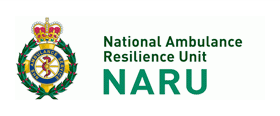Course Details
- Course duration: 1 Day
- Course category: Command, Resilience, TCC1
- Start/finish time: Start time: 0930
Finish time: 1630
Competent TSI Portacount Fit Test Operator Training is a full day course aimed at those who require an in-depth knowledge of Face Fit Testing using the TSI Portacount. This course covers the Competent Fit Test Operator criteria set out in HSE282/28 but also includes many additional practical elements including troubleshooting, how to plan and manage a fit test program and an advanced practical session.
Course overview
The newly revised information document HSE282/28 now states that Face Fit Testing should only be conducted by a trained ‘Competent Person’. Competency includes knowledge of the theoretical aspects of Fit Testing, RPE and methodology as well as skills in practical Face Fit Testing.
Most importantly a ‘competent person’ should have sufficient experience of Face Fit Testing using a variety of different makes and models of RPE. Our Fit Test Operator Training course is a full-day course aimed at those who have responsibility to manage or conduct Fit Testing in the workplace.
- Background to Face Fit Testing
- Legislation and Guidance, HSE282/28
- Installation and Operation of Equipment
- Sampling from the Facepiece
- Fit Test Protocols and Pass Levels
- Set-up and Running Procedures
- Practical face fit testing
- Troubleshooting & Problem Solving
- Fit Test Failures and Re-Tests
- Planning & Managing a Fit Testing Program
- Data Handling and Storage
Course Programme contents
- Background to Face Fit Testing
- Legislation and Guidance, HSE282/28
- Installation and Operation of Equipment
- Sampling from the Face piece
- Fit Test Protocols and Pass Levels
- Set-up and Running Procedures
- Practical face fit testing
- Troubleshooting & Problem Solving
- Fit Test Failures and Re-Tests
- Planning & Managing a Fit Testing Program
- Data Handling and Storage
Intended Audience
This course is intended for NHS ambulance staff who are required to use quantitative face fit testing, for example Special Operations staff and Hazardous Area Response Team paramedics.
Eligibility Criteria
You must be employed by the NHS Ambulance Service and have secured your manager’s authorisation to attend.
Dress Code
Uniform for the duration of the course. Please be advised that the dress for all guests in the mess is respectable and non-revealing and the following items are not to be worn in the public rooms (Dining Room/Bar/TV Rooms) of the mess at any time:
- T-shirts without collar
- Sweatshirts/shirts without collar
- Rugby/football tops
- Ripped, torn or faded denim jeans
- Skirts/dresses shorter than mid-thigh
- Shorts, shell/track suits and clothing worn for sports and physical training
- Trainers, flip-flops, sandals or slippers
- Bomber/ski jackets and body warmers including fleece jackets (cloakrooms are provided for outdoor coats)
Course Location
This course is held at:
The NARU Education Centre
Defence CBRN Centre
Thorneydown Road
Winterbourne Gunner
Wiltshire SP4 0ES
Accommodation
Accommodation is provided as part of the course at Winterbourne Gunner. This is available from 1200hrs the day before however, food will not be available. Your first meal will start with breakfast on the morning of the course.
Winterbourne Gunner is a military site and, we have no control over the accommodation allocation. Please note some rooms do not have on-suite facilities.
Please bring your own towel and toiletries. For additional comfort may we suggest that you bring your own pillow(s). (However, pillows are provided)
Breakfast, lunch and dinner is provided during the course, starting with breakfast on the first day and, finishing with lunch on the final day.
There is a café, cash bar and gym on site. Wi-Fi is available in the accommodation block, however, there is a charge, please speak with the Mess Manager for details.
Pre-read Downloads
Prior to training candidates should study the following documents:
Equipment Requirements
Candidates should bring with them examples of the RPE (Respiratory Protection Equipment) that they would be expected to use, including filters.
For HART staff this would include FM12 respirators and FFP3 masks.
Water bottle (to refill from our water fountain, we no longer supply bottled water)







